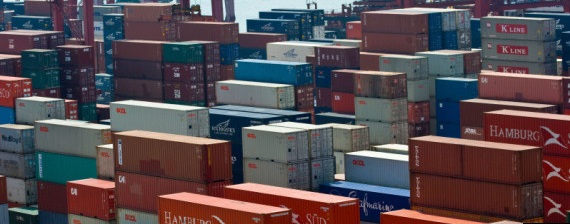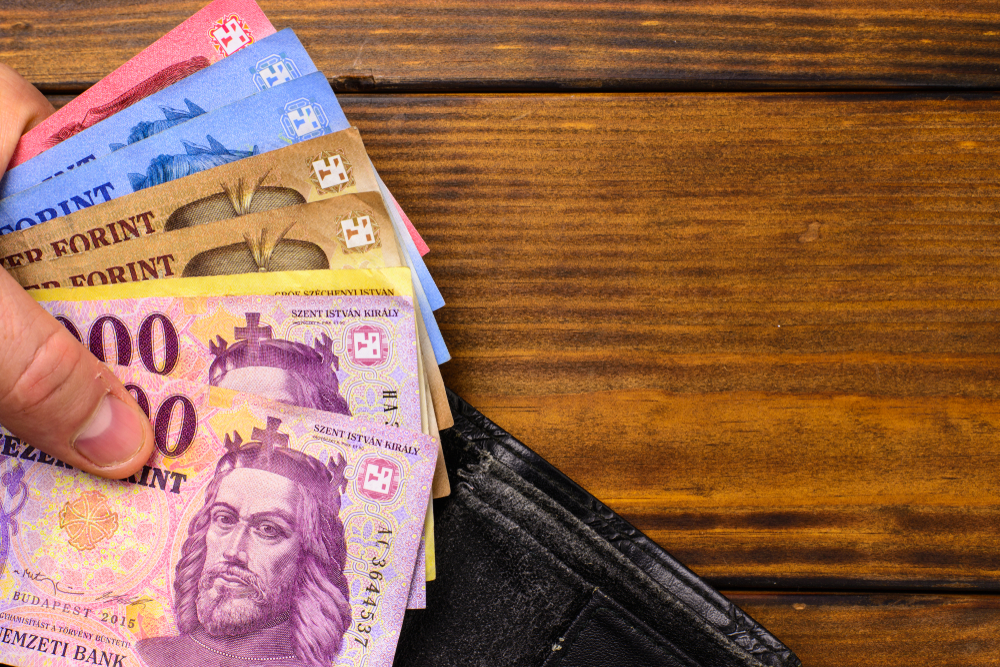KSH: External trade surplus €613 million in August

In the eighth month of 2013, the export volume of external trade in goods increased by 1.4%, while the volume of imports grew by 0.4% year-on-year. In the first eight months of the year, the export and import volumes increased by approximately 3% y.o.y.
In August 2013, exports amounted to €6.4 billion (HUF 1,911 billion), while imports to €5.8 billion (HUF 1,728 billion). The surplus on the trade balance was €613 million (HUF 184 billion) through August.
In the first eight months of 2013, export and import volumes exceeded by 2.5% and 3.2%, respectively the level one year earlier. The value of exports amounted to €53.5 billion (HUF 15.847 trillion), while that of imports was €49.0 billion (HUF 14,485 billion). The surplus on the balance of trade amounted to €4.6 billion (HUF 1,362 billion), which was close to the level last year.
In January to August 2013, the forint price level of external trade in goods decreased by 1.2% in imports and by 0.5% in exports compared to the same period of 2012. The terms of trade improved by 0.7%. The forint exchange rate was down by 1.4% against the euro, and it was up by 1.2% against the dollar.
The export and import volumes of machinery and transport equipment, which gave about half of exports and imports, increased by 2.7 and 2.2%, respectively compared to the corresponding period of 2012. The exports of cars and the imports of related spare parts remained the driving force in the increase of this main commodity group. Regarding the whole period, the trade of road vehicles grew by more than 10% in both directions. In this context, there was a dynamic growth in the imports of power generating machinery and equipment, and within this, especially in the imports of petrol and diesel engines.
The export and import volumes of heterogeneous manufactured goods increased by 6.5% and 5.8%, respectively. The growth in the exports of medical and pharmaceutical products, having the most significant share in this main commodity group, was about the average, while their imports were around the base level. In the imports of pharmaceutical products, the proportion of old member states, while in their exports, the proportions of new member states and extra-EU European countries were significant.
The import volumes of rubber manufactures increased to an outstanding degree, by more than one-tenth, especially due to the increasing demand for the new pneumatic tires. The trade of plastics in primary forms in both directions also grew dynamically.
The import volume of fuels and electric energy was up by 3.4% compared to the first eight months of 2012. The import volume of petroleum, petroleum products and related materials grew by almost one tenth. On the other hand, the import volume of natural and manufactured gas remained below the base level.
The export and import volumes of food, beverages and tobacco were down by 6.5% and 2.4%, respectively compared to the first eight months of 2012. Within the commodity group of cereals and cereal preparations, which has the highest proportion in exports, the corn exports fell by more than half compared to the same period of the previous year. On the other hand, a significant increase was measured in the trade of dairy products and birds’ eggs as well as vegetables and fruit.
In the first eight months of 2013, the share of European Union Member States was 77% in exports and 71% in imports. The trade volume with extra-EU increased significantly more than with EU member states: it increased by 4.7% in exports and by 6.6% in imports compared to the same period of the previous year.
SUPPORT THE BUDAPEST BUSINESS JOURNAL
Producing journalism that is worthy of the name is a costly business. For 27 years, the publishers, editors and reporters of the Budapest Business Journal have striven to bring you business news that works, information that you can trust, that is factual, accurate and presented without fear or favor.
Newspaper organizations across the globe have struggled to find a business model that allows them to continue to excel, without compromising their ability to perform. Most recently, some have experimented with the idea of involving their most important stakeholders, their readers.
We would like to offer that same opportunity to our readers. We would like to invite you to help us deliver the quality business journalism you require. Hit our Support the BBJ button and you can choose the how much and how often you send us your contributions.








